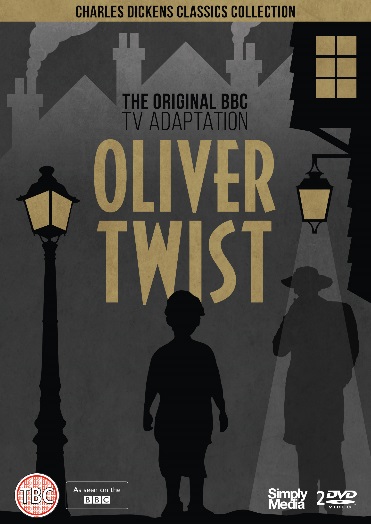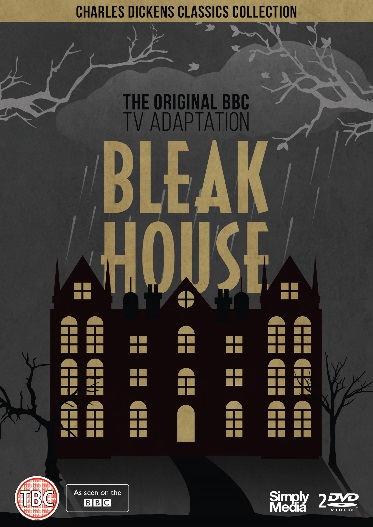
John Jasper (Matthew Rhys), the uncle of young Edwin Drood (Freddie Fox), is a choirmaster, music teacher and opium addict who is secretly in love with Rosa Budd (Tamzin Merchant). But she’s engaged to be married to Edwin (both are currently under age, but plan to wed shortly). Rosa is clearly a desirable woman since she has also caught the attention of Neville Landless (Sacha Derwin), who – along with his sister Helen (Amber Rose Revah) – both hail from Ceylon.
Edwin and Neville take an instant dislike to each other and therefore when Edwin mysteriously disappears he’s an obvious suspect. As is Edwin’s Uncle Jasper …..
Due to its unfinished nature (Dickens died, aged 58, before completing it), The Mystery of Edwin Drood has always been an object of curiosity and, yes, mystery. Had Dickens’ lived, all the evidence suggests that John Jasper would have been unmasked as the murderer (Dickens’ son as well as Luke Fildes, who illustrated the story, were both told this by Dickens himself). But exactly how Dickens would have resolved matters is unknown and since at his death only six of the planned twelve instalments had been completed, the story still had some way to run.
This has inspired something of a cottage industry over the last century or so, as books, plays, films and previous television adaptations have all sought to bring events to a satisfying conclusion. The most recent is this one – which aired on BBC2 in 2012 – and featured a new solution from adapter Gwyneth Hughes.
Right from the opening minutes, we are privy to the tortured, opium-soaked dreams of John Jasper. A nightmarish sequence sees him murder Edwin in church whilst an impassive Rosa looks on. The style of this sequence is bright and warm (contrasting to the darker and muddier tone of the real world) so as the colours begin to fade, Jasper realises that he’s returning to reality.
And it’s a reality that’s increasingly causing him despair. He may be one of the most respected men about town, but this gives him very little joy. A possible reason for this – his desire for Rosa – is teased out as the first episode progresses. Since he’s a very internalised character, he’s not able to express his feelings openly, but various visual clues – for example, when Jasper plays the piano and Rosa sings, the camera closes in on her mouth – help to reinforce these suspicions (as do the comments of others).

As for the eponymous Edwin Drood, he’s initially presented as something of a brash arrogant youngster, although quieter moments later help to deepen his character. The question of whether Edwin and Rosa really are in love or are simply content to go along with their forthcoming arranged marriage is a key part of the narrative which is explored in the opening episode. She regards the clucking of her schoolfriends with disdain (they’re overcome with the romance of it all, she’s not) whilst the first meeting we see between Edwin and Rosa is something of an icy affair – she tells him that they can’t kiss, because she’s sucking a sweet.
When the kind-hearted Reverend Septimus Crisparkle (Rory Kinnear) throws a small party to welcome the Landless’ to polite society, it only serves as another example of Edwin’s less attractive traits. He thinks nothing of insulting Rosa in front of the others – a moment of arrogance which infuriates the previously monosyllabic and placid Neville Landless.
As is typical with a Dickens novel, The Mystery of Edwin Drood offers some prime scene-stealing smaller roles (so often these are the highlights of any production). Ron Cook is a delightful Durdles, a stonemason with intimate knowledge of Cloisterham Cathedral, Ian McNeice sports an impressive pair of mutton-chop whiskers as Major Sapsea whilst Alun Armstrong and Julia McKenzie are further welcome additions to the cast.
But The Mystery of Edwin Drood stands or falls on the performance of John Jasper. Luckily, Matthew Rhys is excellent – giving a gloriously off-kilter performance. Freddie Fox doesn’t have a great deal of screentime, but it’s long enough to highlight all the contradictions inherent in Edwin’s character – at heart, it seems that he’s a decent man who would be a loving husband to Rosa. But it seems fated not to be ….
Tamzin Merchant may be the least developed of the three – Rosa tends to be objectified by both Edwina and Jasper and therefore rarely emerges as a character in her own right – but Merchant comes into her own in the second episode. When Jasper finally admits to Rosa his depths of feeling for her, the wave of revulsion she feels is palpable.
Gwyneth Hughes’ solution to the mystery is quite ingenious (the viewer would be advised to consider the problem of the unreliable narrator). With a running time of only two 60 minute episodes, this is more of a sprint Dickens than a marathon one but The Mystery of Edwin Drood – even with the substantial section created by Hughes – is a compelling drama.
The Mystery of Edwin Drood is released by Second Sight on the 6th of November 2017. RRP £15.99.












































































